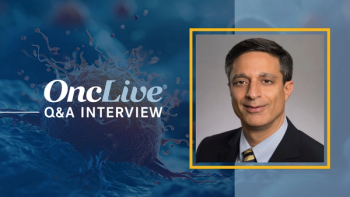
- August 2012
- Volume 6
- Issue 8
Breast Cancer and Its Treatment May Not Cause Long-Term Fatigue
New data show that cancer-related fatigue is reported by only "a small minority" of women >6 months after completing adjuvant therapy for breast cancer.
New data show that cancer-related fatigue is reported by only “a small minority” of women >6 months after completing adjuvant therapy for breast cancer.
David Goldstein, MBBS, conjoint clinical professor at Prince of Wales Hospital in Randwick, Australia, and colleagues analyzed responses to structured interviews and questionnaires completed by 218 women who were receiving adjuvant treatment for stage I or II breast cancer.
While fatigue is a key symptom associated with cancer and cancer treatment, little is known about the early natural history of cancer-related fatigue or effective strategies of prevention or treatment, the authors noted. Prior studies reporting high rates of persistent cancer-related fatigue “used widely spaced follow-up intervals, did not verify that patient symptoms were continuously present from time of treatment, and did not systematically exclude alternative medical explanations,” they added.
Study participants were observed at the end of treatment; at 1, 3, 6, 9, and 12 months’ followup; and again at 5 years. Researchers tracked the continuity of symptoms and thus the “likely link” to cancer treatment. Medical and psychiatric assessments were done to rule out other potential causes of ongoing fatigue in patients whose cancerrelated fatigue lasted for 6 months.
Overall, 51 women (24%) had cancer-related fatigue after surgery and 69 (31%) experienced it at the end of treatment. Cancer-related fatigue became persistent in 24 patients (11%) at 6 months and 12 patients (6%) at 12 months.
At each timepoint, about one- third of patients had comorbid mood disturbance.
Persistent cancer-related fatigue was predicted only by larger tumor size.
Notably, the study confirmed prior systematic reviews showing no treatment-related factors that predicted cancer-related fatigue, including anemia, neutropenia, or induction of menopause.
Goldstein et al emphasized that while cancerrelated fatigue usually has a favorable natural history, it nonetheless produces significant sequelae. These include substantial disability, increased use of healthcare resources, and unmet healthcare needs.
Cognitive behavioral therapy coupled with early interventions for mood disturbances, activity pacing, and graded exercise may be helpful, the authors noted.
They also said that their observations suggest that the high rates of persistent cancer-related fatigue reported in earlier studies may be due to factors unrelated to the cancer or its treatment.
Finally, they acknowledge that their analysis lacked information on cancer recurrence and the presence of other medical or psychiatric comorbidities that might be expected to have an impact on fatigue and mood disturbance.
Goldstein D, Bennett BK, Webber K, et al. Cancerrelated fatigue in women with breast cancer: outcomes of a 5-year prospective cohort study. J Clin Oncol. 2012;30(15):1805-1812.
Articles in this issue
over 13 years ago
Trials in Progress Poster Sessionover 13 years ago
Anemia Linked to Functional Disability in Older Patients With Cancerover 13 years ago
Lower-Income Patients Less Likely to Participate in Clinical Trialsover 13 years ago
Colonoscopy Linked With Lower Risk of Colorectal Cancer Mortality


































